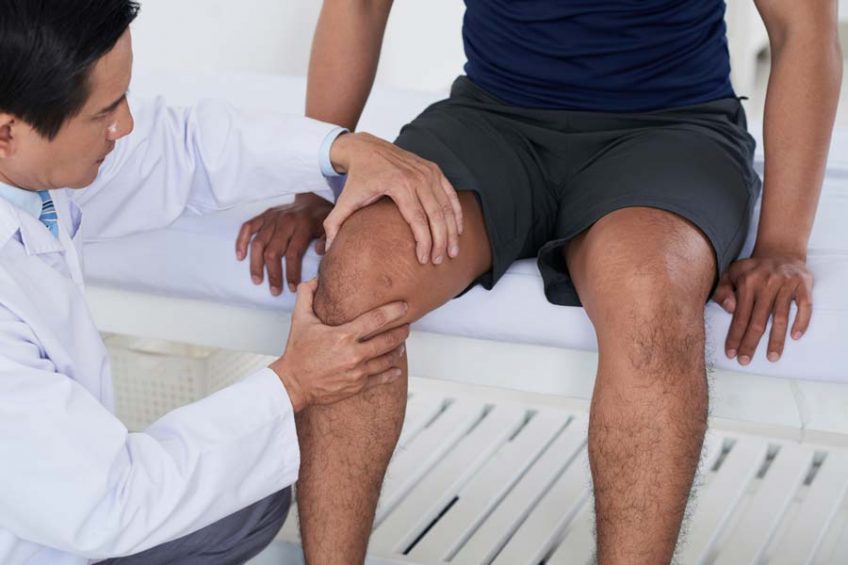Knee pain is commonly experienced by runners of all levels, from beginners to seasoned marathoners. Sometimes referred to as runner’s knee, this nonspecific ailment has a number of causes and can be treated with the help of an orthopedic doctor. To learn more about the condition, as well as what you can do to alleviate it, take a look at the brief guide below.
What Causes Runner’s Knee?
Runner’s knee is a broad terms used to describe of variety of conditions that can cause pain around the kneecap, including irritated soft tissue, strained tendons, and torn cartilage. These injuries are common among runners because the activity puts repetitive stress on the knee joint, which is what supports and distributes the weight of your body whenever you take a step. Improper training techniques, sudden increases in training frequency or duration, and changes in training shoes or surfaces can cause pain. Anatomically, muscle weakness or imbalance or malalignment in the lower extremities can also be associated with patellofemoral pain. Any activity that involves repeated knee stress, such as biking, jumping, or skiing, can cause runner’s knee.
In some cases, a runner may experience knee pain that’s actually a symptom of another problem, such as a back or hip issue. An orthopedic doctor will be able to determine if this is a case during an examination.
How Is Runner’s Knee Treated?
If you experience knee pain during or after a run, you should see an orthopedist as soon as possible. Your doctor will evaluate x-rays and conduct an examination to determine the reason for the pain. If it’s runner’s knee, you’ll likely be asked to rest for a few days and keep your knee elevated to prevent swelling. To ease the pain, you may be told to ice the area and/or and take nonsteroidal anti-inflammatories like ibuprofen or naproxen. Your doctor may also recommend compression by wrapping your knee with an elastic bandage.
Once your pain levels have decreased, and depending on the extent of your injury, you may be given at-home exercises to practice or be referred to physical therapist to ensure your knee regains its full range of motion and strength. Orthotics may be prescribed to help improve your alignment or stabilize your foot or ankle. In some cases, surgery may be necessary if your kneecap is misaligned or if the cartilage has been damaged.
If you’re experiencing knee pain after you run, Advanced Orthopaedic Associates in Wayne, NJ, can help. For more than 25 years, the compassionate physicians at this medical center have been treating people facing sports injuries, fractures, and joint conditions. and more They offer a unique, two-phase approach designed to address immediate symptoms while also ensuring long-term recovery and encouraging prevention. Call (973) 839-5700 to learn more about our services or to schedule an appointment.

